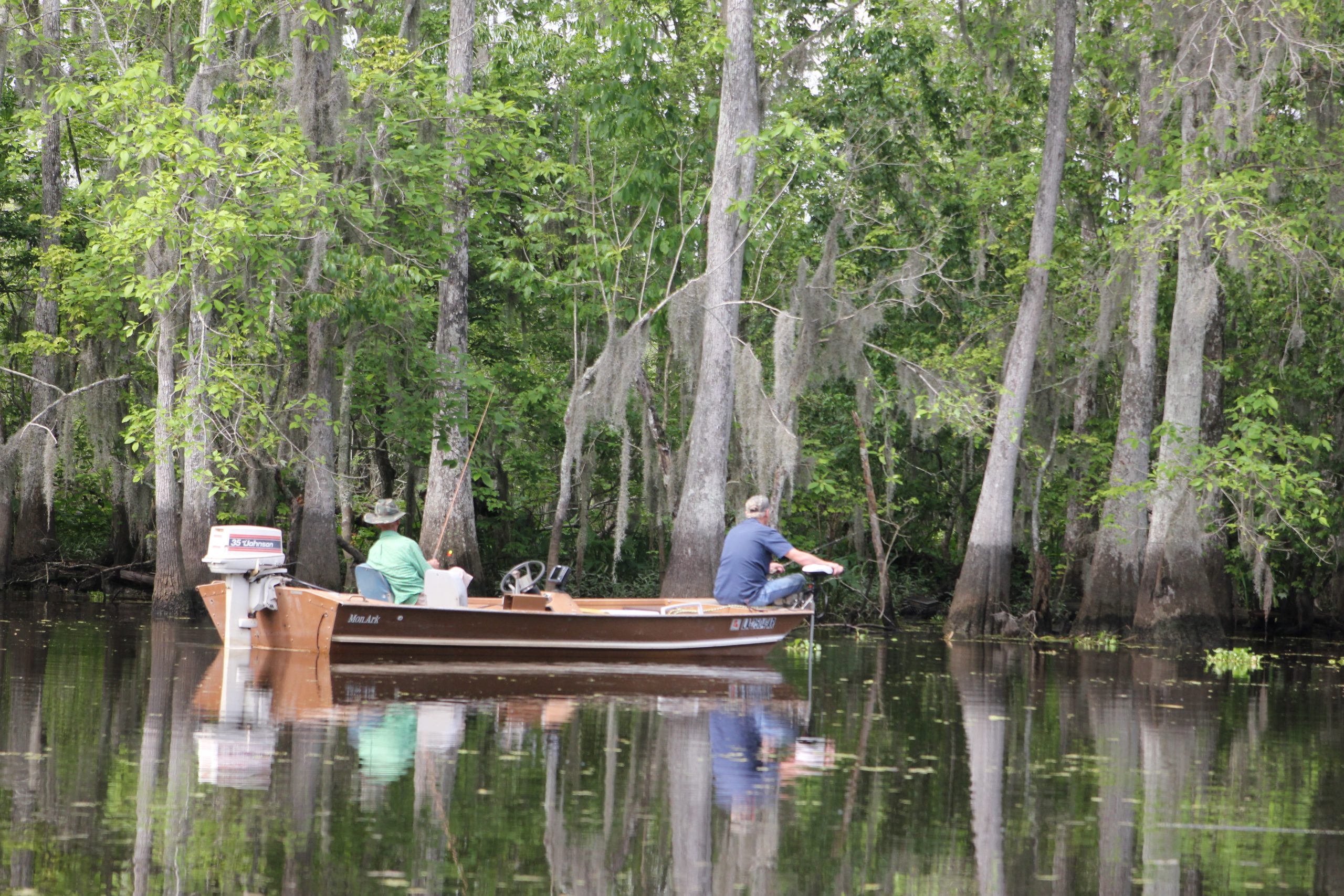
Rebecca Cheramie Beene
November 30, 2011Chlora Dickey
December 2, 2011The Gulf Coast Claims Facility on Wednesday announced it has doubled its claim-calculation formula for those in the shrimp and crab industry who have suffered as a result of last year’s BP Deepwater Horizon oil spill.
A substantial change after weeks of outcry from the seafood industry, the new formula for final payments will impact unsettled or yet-to-be-filed claims. The formula will now pay out four-times the amount of 2010 documented losses as long as the losses do not exceed $500,000. Previously, the claims calculation was two-times documented losses from that year.
GCCF, which is administering a $20 billion fund set aside by BP after the spill to offset monetary damages and bodily injuries, said the change was brought on by “ongoing uncertainty regarding the state of the commercial harvesting of shrimp and crab in the Gulf and the uncertainty of any ongoing impact from the spill.”
State Rep. Joe Harrison, R-Gray, represents all of coastal Terrebonne Parish, home to a large populace of commercial fishermen. Harrison said after the announcement he is “appreciative but cautious” because long-term impacts could be devastating.
“I’m still not comfortable with what they’re doing,” he said. “I’m very, very cautious at this point because we don’t know what the long-term effects are going to be, nor do I want people to be forced into a situation because of desperation to have to sign something and finalize when for years to come, they may be out of business.”
Holdouts could still receive money representative of future losses. If the actual losses through the date of a settlement exceed the four-times-2010 losses, the claimant will be offered the long-term amount.
This allows claimants who believe the long-term damages will be greater than ’10 losses n or those who wish to prolong a decision until the industry’s future is in better focus n the choice to secure interim payments every quarter until they stop feeling the effects.
Harrison said the interim option does not do enough to insure against long-term devastation to the industry. He cited scientific studies that predict doom and gloom to the Gulf seafood industry and said that although he can’t verify the reports at this point, the potential for demise lies in uncertainty.
The lawmaker also said he is concerned with whether current and long-term health concerns are indeed linked to the spill or chemicals used to mitigate the damage.
“I also want to see some segregated funding put aside for the potential of us not being able to revitalize our industry for a couple of years to come,” Harrison said. “The unknowns are the things that concern me.”
Harrison announced last week he was requesting Gov. Bobby Jindal to force mediation between unsatisfied claimants and the claims facility.
Terrebonne Parish President Michel Claudet, who has been in direct contact with GCCF Administrator Kenneth Feinberg, foreshadowed the changes one week ago. Claudet said that after consulting with people in the local seafood industry that he can trust, he reached out to Feinberg to stress that the current methodology didn’t accurately reflect “what I call a worse-than-normal shrimp season.”
“I’m happy for any betterment to our existing situation,” Claudet said. “Is this the answer to our problems? I can’t really tell you at this particular time because no one knows what the future has in store.
“The thing I’m concerned about always is that I’d hate for people to waive or to go ahead and give up any rights because they feel pressured because of financial restraints.”
The Southern Shrimp Alliance represents shrimp fishermen and processors from eight states spanning from Texas to North Carolina. John Williams, the alliance’s executive director, said SSA has offered input to payment formulas throughout the process and that he believes the alterations will go “a long way towards restoring our industry.”
“We haven’t had a good chance to analyze it completely yet, but we do think that anything that treats the shrimp industry fairly and accurately, we certainly support,” Williams said. “Extending this from two years to four years will certainly be a move in the right direction.”
When asked if the current methodology can safeguard fishermen from depleted resources, the SSA executive director said it’s still too early to comment one way or the other.
“We’re always concerned by long-term environmental damage and resource damage, but I don’t think there’s enough evidence yet to make that determination,” he said.
Congressman Jeff Landry, Dist. 3, said he “appreciated” the changes but will continue to monitor the claims facility’s payout procedures.
“Although today’s announcement is a great positive step forward, it is not a complete solution to making all impacted by the spill whole; so I will continue to work hard to make sure our families, friends, and neighbors negatively impacted by the spill are justly compensated for their losses,” Landry said in a news release.
Unsettled claimants and BP have scrutinized GCCF headman Kenneth Feinberg from opposite vantage points, putting the administrator in a precarious position between the two. BP accused the administrator of being too liberal in his payouts, while claimants have charged GCCF with losing paperwork and locals have said Feinberg does not understand the commercial seafood industry.
Overall, the claims facility has settled fishing, distribution and processing claims with 20,797 individuals at an average of $10,439 per claim and 20,279 businesses at an average of $39,273.
In Louisiana, 8,694 individual payouts have been secured at an average of $11,181 per claim and 9,356 business claims at an average of $42,601 have been satisfied.








